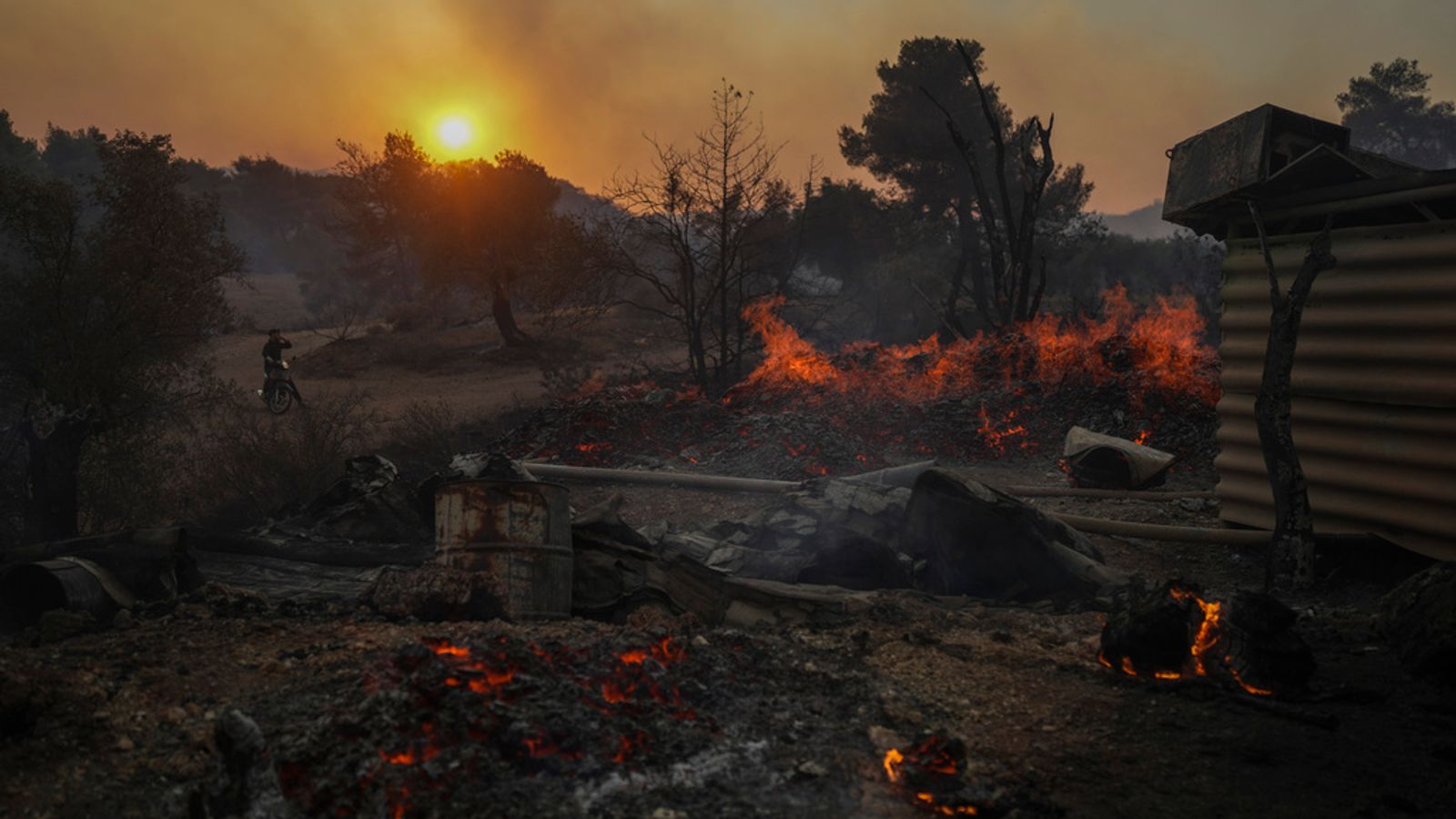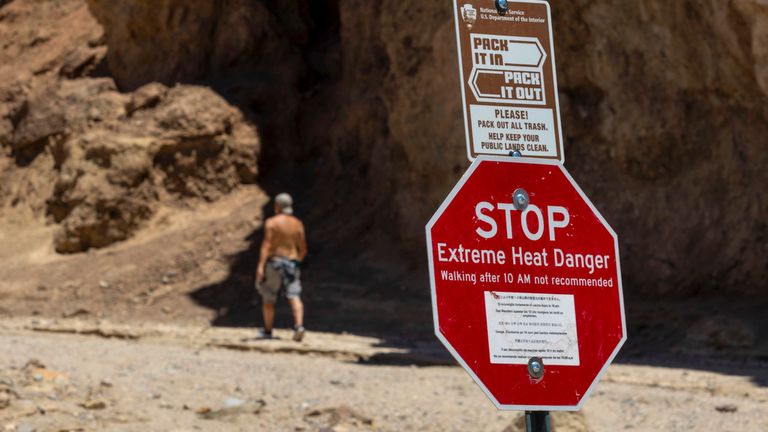
Temperatures across parts of Europe remain above 40C (104F) , as wildfires rage in Greece.
Winds near Athens have fuelled a major wildfire close to the Greek capital, forcing people from their homes and burning 13.5 square miles (35 square km) of forest and scrubland.
Authorities had declared the huge blaze contained overnight on Wednesday, but firefighters lost control of the fire when the wind picked up, officials said.
See the weather forecast where you are
Greek Prime Minister Kyriakos Mitsotakis said “the hard times are clearly not over yet”, adding: “We are facing another heat wave and a possible strengthening of the winds… absolute vigilance and absolute readiness are required over the next few days.”
As well as around Athens, there are also evacuation orders on the island of Rhodes.
While temperatures are expected to cool slightly to the mid-30Cs on Friday, the Met Office predicts they will rise again to around 41C (105F) on Sunday.
Spain and Italy have also faced searing heat in recent days, with Murcia in southern Spain and the Italian island of Sicily both bearing the brunt of the 44C (111.2F) heat, with public warnings issued for children and older people.
Spanish news service EFE said a Moroccan man died in Murcia from heat-related problems on Thursday.
Temperatures in Spain will rise once more on Sunday, forecasters say, when a national election is taking place.
Meanwhile in the US, Arizona is bracing for temperatures of more than 48C (118.4F) – the 21st day in a row that heat has exceeded 43C (109.4F).
Read more:
How will the heatwave affect your holiday
British holidaymakers are changing their Europe plans as temperatures surge
‘Low chance’ of UK heatwave this summer, experts say
Teams with the City of Phoenix Heat Response Program have been preparing heat relief kits, manning hydration stations and handing out water bottles to homeless people.
In California’s Death Valley, which is no stranger to high temperatures, a 71-year-old man collapsed and died earlier in the week, with rangers at the National Park reporting it was likely hotter than 50C (122F) in the valley itself.
Death Valley, the lowest point in the US, holds the record for the hottest temperature ever recorded on Earth, at 56.7C (131.1F)
A third of the US is experiencing extreme weather, mostly focused across the south of the country.
The US National Weather service predicts the intense heat will last into next week before abating, with 80 million Americans likely to see temperatures above 40C.
In India, monsoons have killed more than 100 people in recent weeks, as well as triggering landslides and flooding.
Monsoon rains, which typically fall between June and September, have been 2% higher than normal, according to the country’s weather service.
Click to subscribe to ClimateCast wherever you get your podcasts
Meanwhile in the UK, a month’s-worth of rain is expected to fall in the space of 48 hours.
Forecasters say hilly areas of northern England and Northern Ireland, as well as southern areas of Scotland and Wales, could see up to 80mm of rain from Saturday.
A typical month’s rainfall in July in the UK is 88mm.













